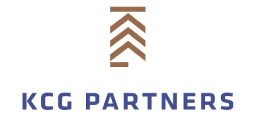In accordance with its latest announcement, Hungarian Government decided to temporarily decrease the excise duty imposed on fuel products as of 10 March 2022. Other governments in the region also introduced similar measures to control fuel prices and thus inflation; compliance with the EU rules, however, might be of secondary importance.
On 10 March 2022, late in the evening the Hungarian Government announced - inter alia - to cut excise duty on fuel products with HUF 20/litre. The excise duty on petrol had been already cut on 28 February 2022 from HUF 120/litre to 115/litre and now to HUF 95/litre (fuel prices had been also already capped). The Association of Independent Petrol Stations in Hungary also requested previously to decrease the VAT rate applicable on fuels from 27% to 5%.
It is not uncommon to try to control fuel prices via taxation, since excise duty and VAT (that also applies to the net price and excise duty as well) forms a significant part of fuel prices within the EU, almost half of the final price. Although, it is not entirely up to the governments of the Member State: EU legislation sets harmonised minimum rates for excise duty and Member States are free to apply excise duty rates above these minima, according to their own national needs. The minimum rate for fuel (‘leaded petrol’) is EUR 0.421/litre and the now decreased Hungarian rate might just be well below the threshold, even if just temporarily.
Hungary is not the only Member State taking similar action: Romania’s coalition government also planned to temporarily halve excise taxes on fuels, even below the threshold, to help lower inflation from its highest level in over a decade. In Poland - as part of the “anti-inflation shield”- the government introduced its plan to cut value-added tax on fuel and introduce a zero VAT rate on goods including natural gas in January 2022. The problem once again is that it is inconsistent with the VAT directive, which allows a minimum 5% tax rate for natural gas.
The European Commission has not responded to the incompliance(s) yet, it would not be surprising either, if some sort of temporary derogation option would be announced in this regard.
By Balint Zsoldos, Head of Tax, KCG Partners Law Firm


